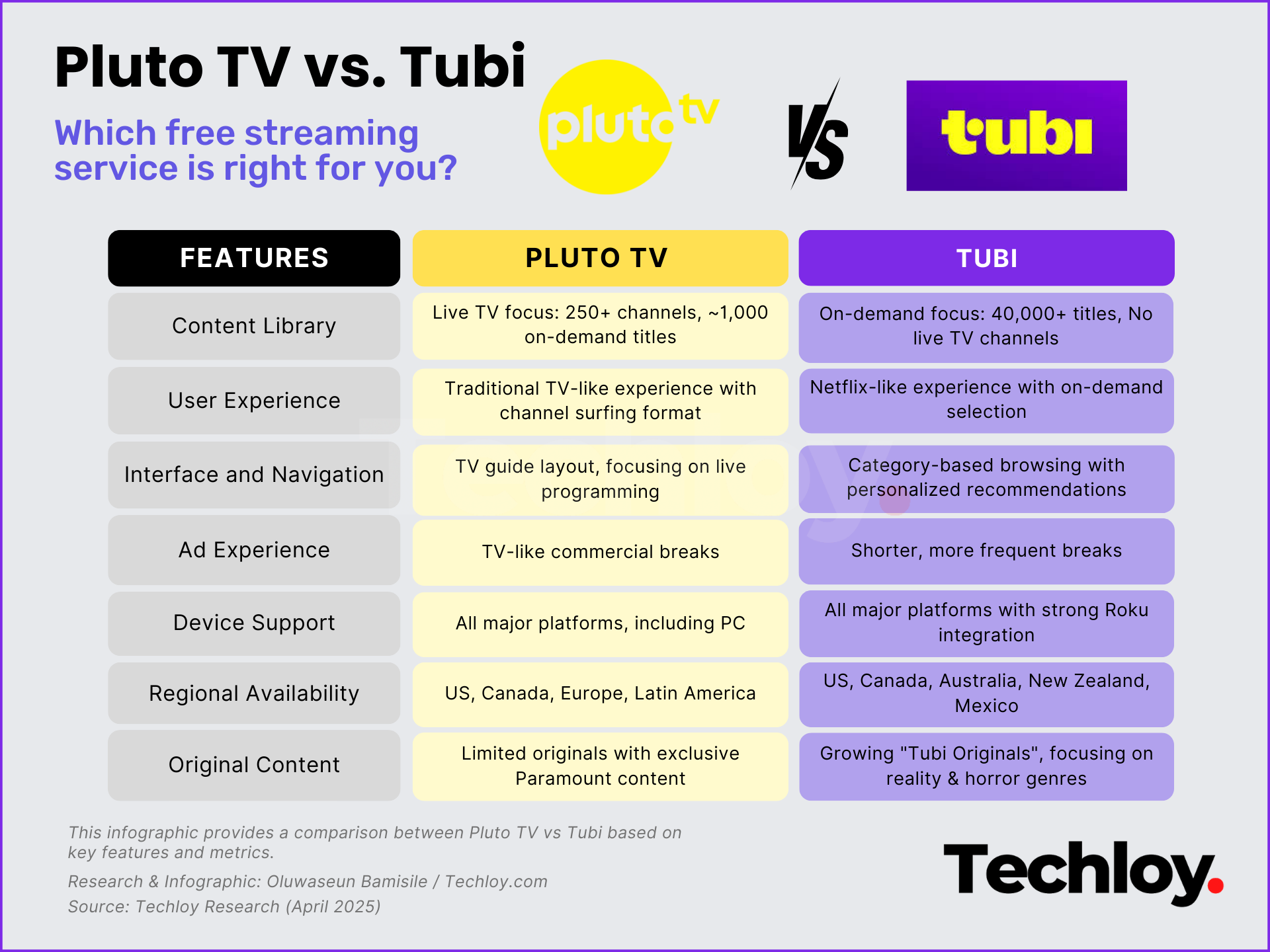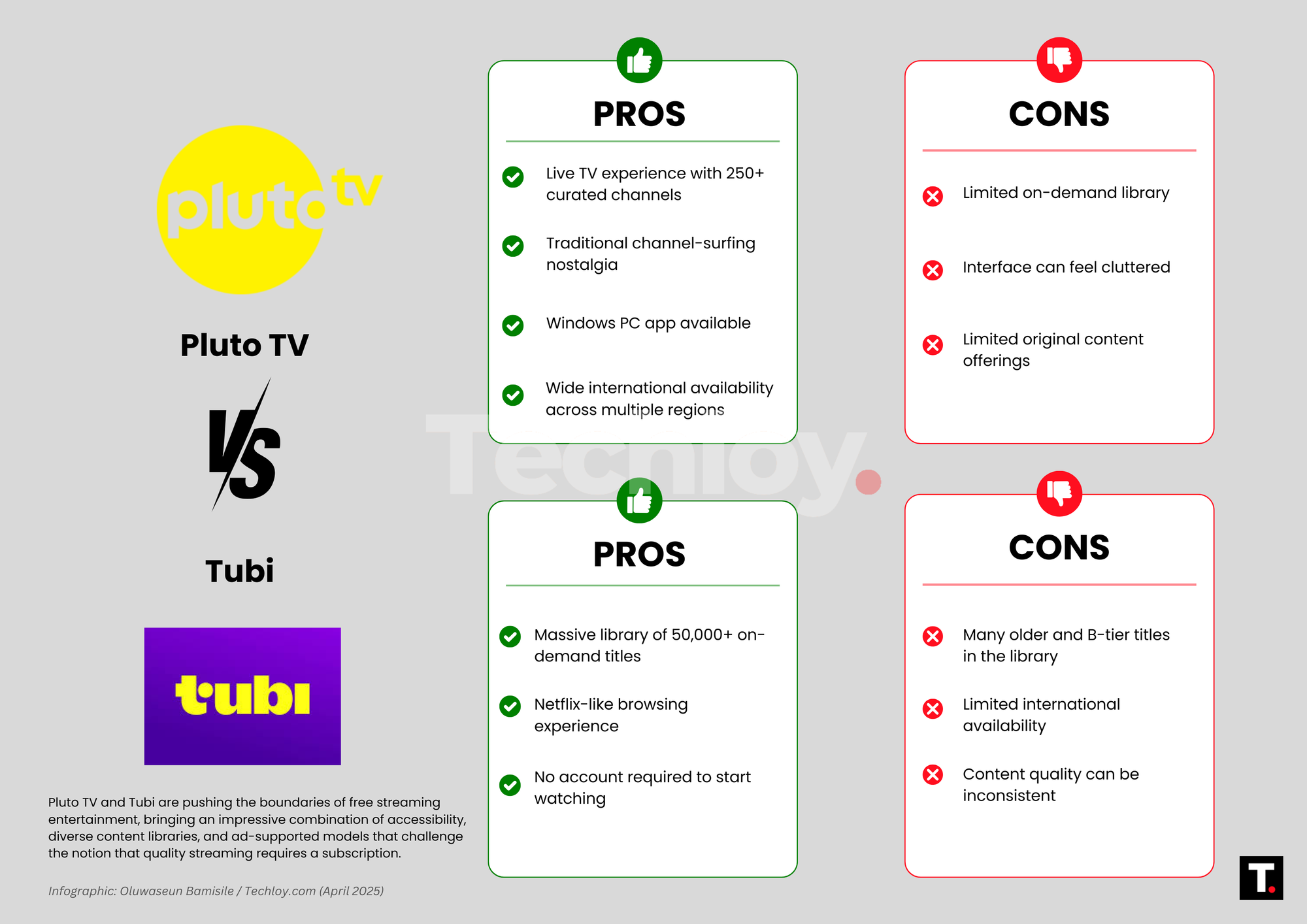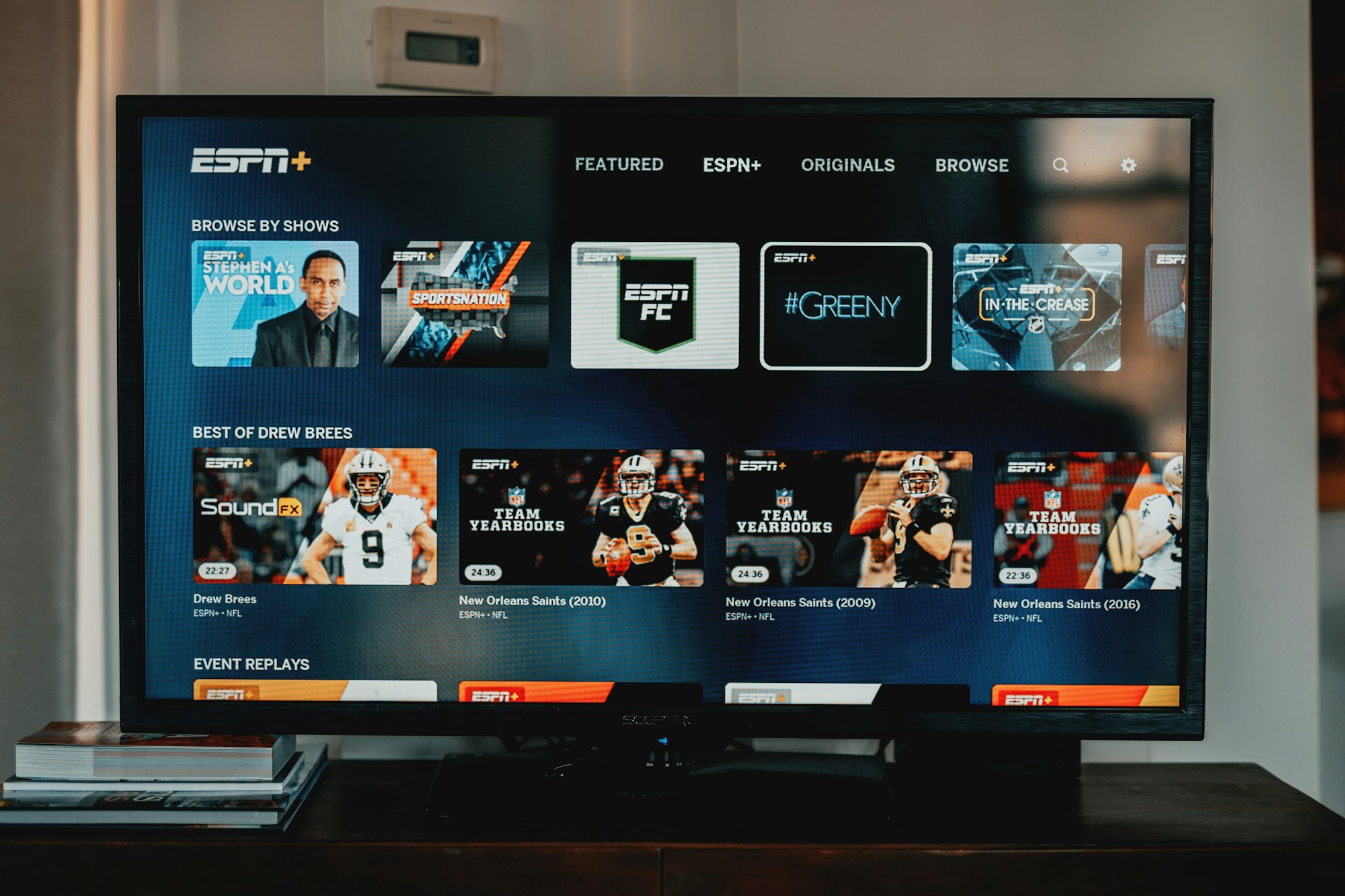Pluto TV vs. Tubi: Which Free Streaming Service Deserves Your Screen Time?
Both are ad-supported streaming services with unique strengths.

Remember when you signed up for that streaming service at just $5.99 a month, only to watch it climb to nearly double that price over the years? We've all been there—checking our credit card statements with growing frustration as Netflix, Disney+, and others hike their rates while simultaneously cracking down on password sharing.
With the average household now spending upwards of $50 monthly on streaming subscriptions, according to industry statistics, it's no wonder many viewers are exploring free alternatives to ease the burden on their wallets. Two standout contenders in this space—Pluto TV and Tubi—have carved out unique identities while offering impressive entertainment options without asking for your credit card information.
Both services have grown significantly in popularity, but they take remarkably different approaches to free streaming. So, which one might be the better fit for your viewing habits? Let's discuss what makes each platform different and help you decide where to spend your precious screen time.
/1. The Content Libraries
When it comes to content, both platforms have their strengths. Pluto TV offers a diverse range of live TV channels, including popular networks like CBS News, NFL, CNN, Comedy Central, Bloomberg, MTV, Nickelodeon, and a variety of anime channels. It also features notable shows such as Star Trek, The Twilight Zone, Sailor Moon, and Merlin. While its on-demand library might be relatively smaller, it makes up for it with a selection of popular shows and indie films like The Walking Dead, Nashville, The Big Lebowski, and This Is Spinal Tap.
Tubi, however, shines in its extensive on-demand library. With over 50,000 titles, it offers a wide selection of genres, including Hollywood blockbusters like Inception, The Dark Knight, and The Mummy, as well as TV hits like Buffy the Vampire Slayer, The X-Files, and Angel. Tubi also has a dedicated kids' section called Tubi Kids, featuring over 1,200 age-appropriate movies and TV shows, including Sonic Boom, Clifford, Scooby-Doo, and Power Rangers. Additionally, Tubi has deals with major studios and entertainment companies like Lionsgate, giving it access to popular movies like Saw and The Expendables that aren't available on Pluto TV.
Which Wins: Tubi. A massive on-demand library with content variety makes it a better option.
/2. User Experience
The biggest difference between these services comes down to their fundamental approach to streaming. Pluto TV recreates the traditional cable experience with its live, linear programming. When you open the app, something is always playing—perfect for those who sometimes just want to tune in without making decisions.
Pluto TV's channel lineup includes themed options for news, sports, comedy, drama, and more, organized in a familiar programming guide. This makes it ideal for background viewing or when you're feeling decision-fatigue from too many choices on other platforms.
Tubi, meanwhile, operates purely as an on-demand service. You'll need to actively choose what to watch, but you gain the flexibility to start, stop, and resume content whenever you please. It feels more like a traditional streaming service in this regard. For viewers who prefer to curate their own viewing experience rather than watch whatever happens to be on, Tubi provides that control.
Which Wins: It's a tie since each platform excels at its distinct approach to streaming—live TV versus on-demand.

/3. Interface and Navigation
Pluto TV's interface prioritizes its live TV component, with a familiar cable-like guide showing what's currently playing and coming up next across its channels. The on-demand section feels more like a secondary feature. The live TV interface can feel slightly cluttered compared to premium services, but anyone familiar with cable TV will find it instantly recognizable.
Tubi, on the other hand, offers a cleaner, more Netflix-like browsing experience with personalized recommendations and well-organized categories. Its focus on discovery makes finding new content relatively painless despite its massive library. Tubi's interface allows you to pick up where you left off with a "Continue Watching" section and offers well-curated collections that make its extensive library more manageable
Which Wins: Tubi. It delivers a cleaner, more intuitive Netflix-like interface with better personalization and content discovery features.
/4. Ad Experience: The Price of Free
Both services are ad-supported—that's how they stay free. But the ad experience differs. Pluto TV's commercial breaks feel more like traditional TV, appearing at predictable intervals and sometimes running longer. In live channels, everyone sees the same ads at the same time. You can expect around 3-6 minutes of ads for every 30 minutes of content, which is actually less than traditional broadcast television.
In comparison, Tubi usually features shorter ad breaks, but they can sometimes feel more frequent. The upside is that ads are often more targeted to your interests, making them potentially less intrusive. Tubi generally shows around 2-5 minutes of ads per hour, though this can vary by content.
Neither service allows you to skip or fast-forward through ads, so that's the price you pay for free content. Nonetheless, both keep their ad loads lighter than what you'd experience on traditional broadcast TV.
Which Wins: Tubi. It edges ahead with fewer total minutes of ads per hour and more personalized ad targeting.
/5. Device Support and Availability
Both services are widely available across platforms. You'll find both Pluto TV and Tubi on smart TVs (including Samsung, LG, Vizio, and others), streaming devices (Roku, Amazon Fire TV, Apple TV), mobile phones (iOS and Android), web browsers, and gaming consoles. Interestingly, Pluto TV is available on Windows PCs, which is quite unusual for streaming services. Neither requires creating an account to start watching, though creating one enables features like favorites and watchlist.
When it comes to regional availability, Pluto TV is available in multiple countries across North America, Europe, and Latin America. You can access it in the United States, Canada, the United Kingdom, Germany, Austria, Switzerland, France, Spain, Italy, and several Latin American countries. However, the channel lineup and content library vary significantly by region due to licensing agreements.
On the other hand, Tubi has a more limited international footprint, focusing primarily on the United States, Canada, Australia, New Zealand, and Mexico. The service has been gradually expanding its global presence, but U.S. viewers still get access to the most extensive content library.
Which Wins: Pluto TV. It boasts significantly broader global availability
/6. Original Content
When it comes to original content, neither service competes with the likes of Netflix or HBO Max, but they're beginning to dip their toes in. Pluto TV occasionally features exclusive content through its parent company, Paramount.
Tubi has also begun investing in original content, particularly in the reality and documentary space, plus some original movies focusing on genres like horror and thrillers. Its "Tubi Originals" section continues to grow, though don't expect big-budget productions.
Which Wins: Tubi. With its dedicated "Tubi Originals," it demonstrates a stronger commitment to original content.

Final Thought: Make Your Choice
If you miss traditional TV channel surfing and enjoy the thrill of stumbling upon something interesting, Pluto TV offers a unique blend of nostalgia and convenience. Its strength lies in creating an experience where you can just turn it on and be entertained.
Meanwhile, if you prefer maximum choice and control over what you watch, Tubi's vast library gives you more options than you could explore in years. Movie buffs might particularly appreciate Tubi's diverse collection spanning decades and genres.
However, the beauty of free services is that you don't have to choose—try both!








